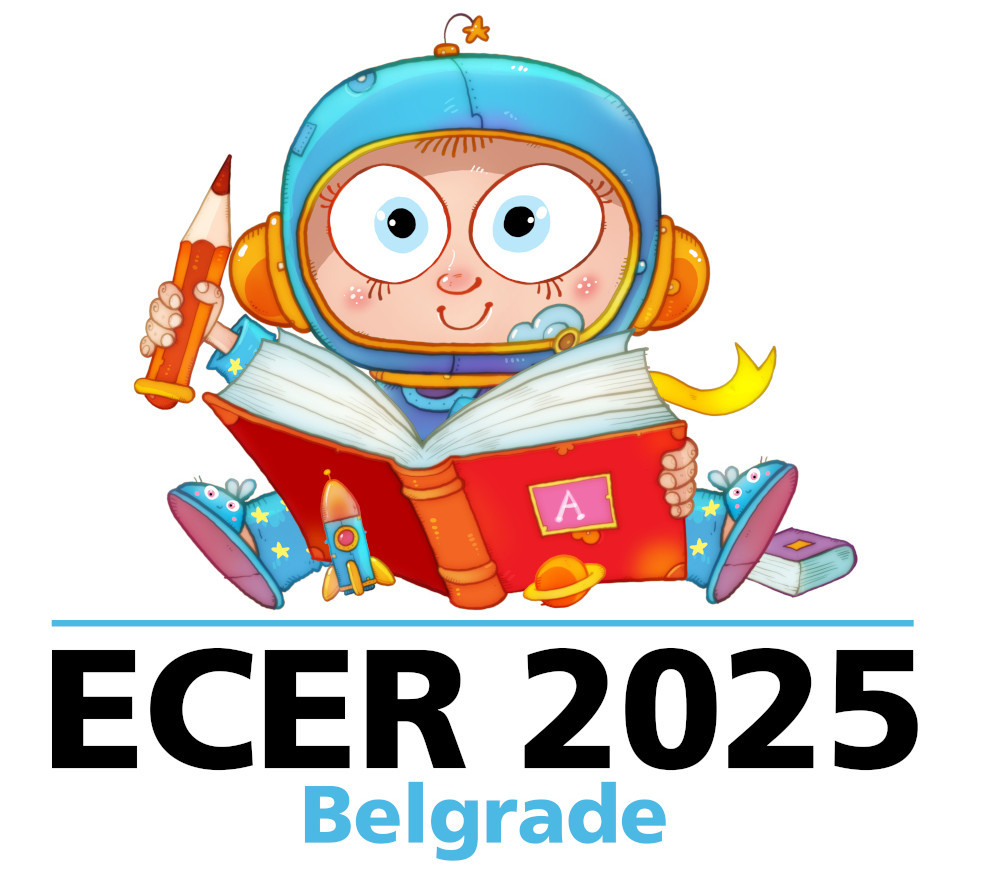- Speakers: Philippe Gabriel (Avignon University, France); Marita Cronqvist (University of Borås, Sweden); Marie-Paule Jacques (University Toulouse Jean-Jaurès, France); Gaëlle Molinari (University of Geneva, Switzerland); Kah Loong Chue (National Institute of Education, Singapore); Helena Topa Valentim (NOVA University of Lisbon, Portugal)
- Chairperson: Philippe Gabriel
- When: 00 SES 11 A / Thursday, 11/Sept/2025: 13:30 - 15:00
- Location: Mak | Kinoteka | 1. Fl
The integration of Artificial Intelligence (AI) into academic writing has sparked mixed reactions, from optimism about enhanced support to concerns over deskilling and ethical dilemmas. AI-driven tools offer personalized feedback, self-regulated learning, and writing assistance, but also present risks of over-reliance and loss of critical skills. This panel moves beyond simplistic debates to explore AI’s evolving role in shaping university writing competencies.
By bringing together international perspectives and empirical research, this session examines how AI is transforming writing practices, its cognitive and pedagogical implications, and the necessary adaptations in higher education.
Key Themes and Contributions
This discussion panel gathers experts from France, Switzerland, Portugal, Singapore, and Sweden to explore the impact of AI on academic writing practices, literacy development, and teacher education.
1. University Writing Practices and AI: Opportunities and Challenges
Philippe (France, écri+) will analyze the links between educational background and writing performance, drawing on his experience as a référent for écri+. He will present institutional strategies, student needs, and faculty concerns regarding AI’s role in academic writing.
2. AI as a Writing Aid: Supporting or Undermining Skills?
Gaëlle Molinari (Switzerland, TECFA, University of Geneva) will discuss how AI-based tools impact academic competencies and collaboration. She will introduce the concept of hybrid intelligence, emphasizing the co-evolution of human and AI capacities in writing.
3. AI in Writing Feedback: Enhancing Evaluation
Marie-Paule Jacques (France, écri+) will explore AI’s potential to provide detailed, student-centered feedback, improving upon traditional approaches. She will also address the risks of AI dependency and maintaining human oversight in evaluation.
4. AI and Self-Regulated Learning
Chue Kah Loong (Singapore, National University of Singapore) specializes in educational assessment and will discuss:
- AI’s role in self-regulated learning and student autonomy.
- Potential risks of over-reliance on AI-generated suggestions.
- Insights from Lee et al. (2025) on AI’s effects on cognitive effort and confidence in writing.
5. Linguistic and Epistemological Perspectives on AI in Academic Writing
Helena (Portugal, University of Lisbon) will examine AI-generated writing from a linguistic and epistemological perspective, discussing:
- The impact of AI on universities as spaces of discursive production and the role of linguists in this transformation.
- The limits of transparency and equivalence in natural languages, challenging the assumption that language is a direct representation of thought.
- Ethical considerations in linguistic epistemology, questioning formal models that predict alignment between language structure and cognitive processes.
- The challenge AI poses for contemporary linguists, particularly in fostering research and language learning conditions.
- A critique of current educational models, contrasting them with an emerging paradigm that promotes critical thinking, creativity, and questioning over efficiency-driven skill optimization
Demonstration using written data from primary, secondary, and university students in Portugal.
6. Challenges for Educators in an AI-Driven Landscape
Marita Cronqvist (Sweden, NW10 – Teacher Education Research) will highlight:
- The need to rethink writing instruction in the AI era.
- How AI affects academic integrity and writing assessment.
- Strategies to guide students in responsible AI use.
Discussion and Expected Outcomes
This interactive session will engage participants in a critical discussion on AI’s dual role in academic writing. Key questions include:
- Does AI enhance or hinder student writing quality?
- How can institutions integrate AI without diminishing critical writing skills?
- What role should educators play in guiding AI use?
- How do we balance AI support with maintaining academic integrity?
Aligning with EERA networks NW16, NW10, NW01, and NW31, this session will offer insights for educators, researchers, and policymakers, paving the way for future collaboration, including contributions to the AI-focused summer school planned for 2026.

Important Dates ECER 2025
01.12.2024 | Submission starts |
31.01.2025 | Submission ends |
01.04.2025 | Registration starts |
01.04.2025 | Review results announced |
15.05.2025 | Early bird ends |
25.06.2025 | Presentation times announced |
30.06.2025 | Registration Deadline for Presenters |
08.09.2025 | ERC First Day |
09.09.2025 | ECER First Day |
Conference Venue
Main Building (Check-in etc):
University of Belgrade
Faculty of Philology
Studentski trg 3
Belgrade

Ed Research in Serbia
While preapring for ECER 2025, read the Blog Post introducing some specifics of educational research in Serbia.
Towards reconnecting within and beyond the educational research community in Serbia